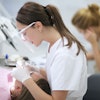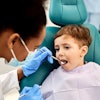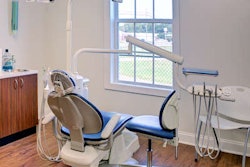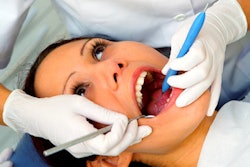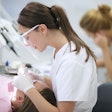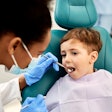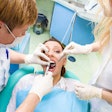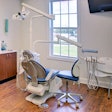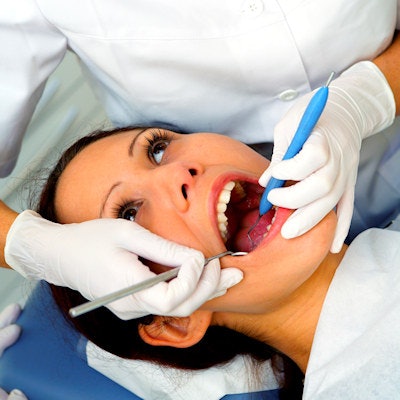
Dental therapists in Minnesota netted a median annual income of $81,000 to $90,000, while advanced dental therapists in the state earned up to a median of $100,000 per year, according to a recent survey published in the Journal of the American Dental Association.
A research team led by third-year Harvard dental student Yuanyuan Laura Luo surveyed dental therapists in Minnesota, which in 2009 became the first state to formally license the profession. The researchers' goal was to better understand why respondents became dental therapists and their opinions on various aspects of the profession.
"As demand for oral health care services increases nationwide, policy makers should consider crafting legislation that allows [dental therapists] and [advanced dental therapists] to fulfill the growing needs by practicing to the fullest extent of their education and training," Luo and colleagues wrote (JADA, August 12, 2021).
Nearly two dozen states have passed or are considering dental therapy legislation. Oral healthcare advocacy groups have touted dental therapists as a solution to address the oral healthcare needs of underserved, low-income, and uninsured populations.
In Minnesota, dental therapists have been licensed to practice in underserved areas for more than a decade, making them a prime cohort to study the strengths and shortcomings of this new type of dental professional. The state requires dental therapists to complete a bachelor's degree in dental hygiene or be licensed as a dental hygienist prior to starting training. Advanced dental therapists must also practice for 2,000 hours and pass a certification exam.
The authors sent their 31-question survey to nearly all of the 117 dental therapists and advanced dental therapists listed on the Minnesota Board of Dentistry website. A little more than half (51%) completed the survey.
Nearly all respondents (82%) were certified as advanced dental therapists, and the remaining 18% were pursuing advanced certification. While most said the requirements to become an advanced dental therapist were about right, 17% thought the process was too burdensome, including many respondents who had already earned the designation.
Dental therapists in Minnesota had a median income of $81,000 to $90,000 per year, and advanced dental therapists earned $91,000 to $100,00 per year. However, income varied greatly, with respondents earning a range of $31,000 to $170,000 annually.
Minnesota dental therapists and advanced dental therapists practiced in a variety of settings, including private practices, federally qualified health centers, and group practices. They saw an average of 13 patients per day, with eight of those patients receiving operative procedures.
When asked about whether a dental hygiene degree should be required to enter the field, the respondents were split down the middle. Those who had practiced as dental hygienists before becoming dental therapists said their training was crucial for their new career. However, those who completed a dental hygiene degree immediately before getting their master's degree in dental therapy said their dental hygiene training was unnecessary.
More autonomy and a larger scope of practice were the most important reasons why respondents chose to join the field. Other reasons included a higher earning potential and being influenced by others to do so.
Those who took the survey reported a need for broadened prescribing rights. Dental therapists and advanced dental therapists may administer certain medicines under Minnesota state law, but many said it would be beneficial if they could prescribe fluoride and antibacterial rinses when working without a dentist onsite. They would also like to prescribe certain antibiotics.
"Our study also found that [dental therapists] and [advanced dental therapists] believed their practice is limited by factors such as educational requirements, scope of practice, and prescribing rights," the authors wrote. "The ability of this new profession to further improve access to oral health care may rely on a more evidence-based evaluation of educational and supervision requirements."
The study had some limitations. The authors said the response rate of 51.3% could have contributed to selection bias. Furthermore, the survey was only for dental therapists in Minnesota, so more research needs to be conducted on individuals in other states.
"Policy makers considering dental therapy legislation must consider educational requirements and scope of practice when crafting state legislation," the authors wrote. "Broadening the scope of practice may allow for more impactful care for at-risk communities."
